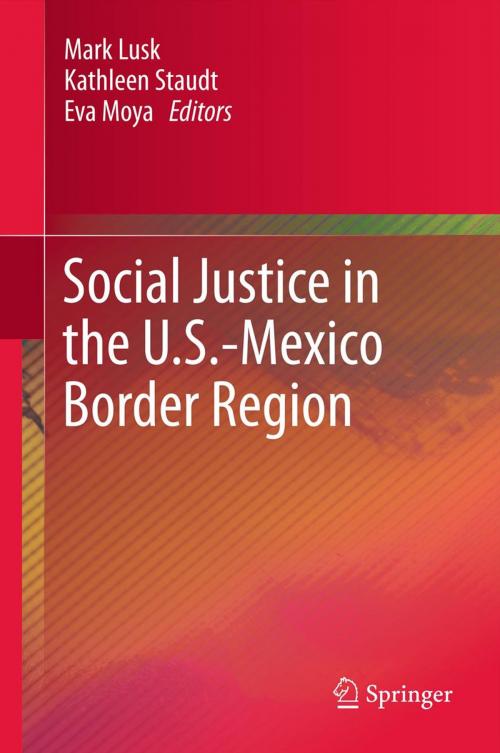Social Justice in the U.S.-Mexico Border Region
Nonfiction, Social & Cultural Studies, Social Science, Cultural Studies, Emigration & Immigration, Sociology| Author: | ISBN: | 9789400741508 | |
| Publisher: | Springer Netherlands | Publication: | June 12, 2012 |
| Imprint: | Springer | Language: | English |
| Author: | |
| ISBN: | 9789400741508 |
| Publisher: | Springer Netherlands |
| Publication: | June 12, 2012 |
| Imprint: | Springer |
| Language: | English |
The U.S.-Mexico Border Region is among the poorest geographical areas in the United States. The region has been long characterized by dual development, poor infrastructure, weak schools, health disparities and low-wage employment. More recently, the region has been affected by the violence associated with a drug and crime war in Mexico. The premise of this book is that the U.S.-Mexico Border Region is subject to systematic oppression and that the so-called social pathologies that we see in the region are by-products of social and economic injustice in the form of labor exploitation, environmental racism, immigration militarism, institutional sexism and discrimination, health inequities, a political economy based on low-wage labor, and the globalization of labor and capital. The chapters address a variety of examples of injustice in the areas of environment, health disparity, migration unemployment, citizenship, women and gender violence, mental health, and drug violence. The book proposes a pathway to development.
The U.S.-Mexico Border Region is among the poorest geographical areas in the United States. The region has been long characterized by dual development, poor infrastructure, weak schools, health disparities and low-wage employment. More recently, the region has been affected by the violence associated with a drug and crime war in Mexico. The premise of this book is that the U.S.-Mexico Border Region is subject to systematic oppression and that the so-called social pathologies that we see in the region are by-products of social and economic injustice in the form of labor exploitation, environmental racism, immigration militarism, institutional sexism and discrimination, health inequities, a political economy based on low-wage labor, and the globalization of labor and capital. The chapters address a variety of examples of injustice in the areas of environment, health disparity, migration unemployment, citizenship, women and gender violence, mental health, and drug violence. The book proposes a pathway to development.















